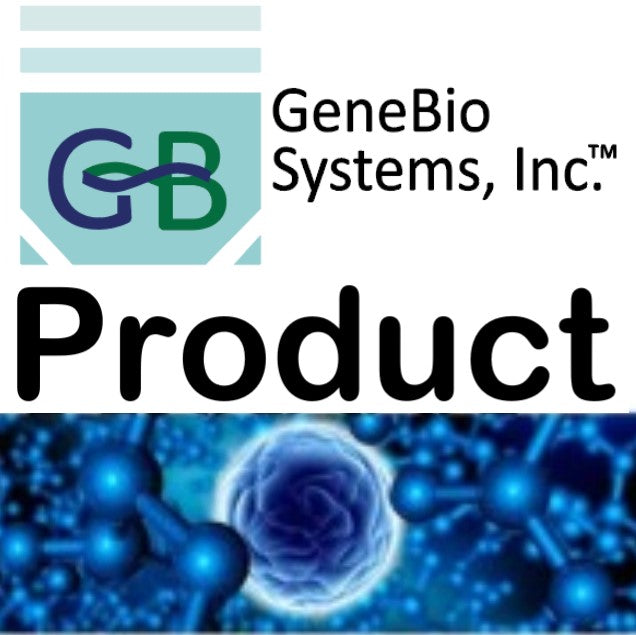Gene Bio Systems
Human Epidermal growth factor (EGF) ELISA Kit
Human Epidermal growth factor (EGF) ELISA Kit
SKU:AE46044HU
Couldn't load pickup availability
Species Reactivity:Human (Homo sapiens)
UniProt:N/A
Abbreviation:EGF
Alternative Names:N/A
Application:ELISA
Range:3.9-250 pg/mL
Sensitivity:1.5 pg/mL
Intra-AssayCV:?3.9%
Inter-AssayCV:?6.2%
Recovery:0.9
Sample Type:Serum, Plasma, Other biological fluids
Detection Method:Sandwich
Analysis Method??:Quantitive
Test principle:This assay employs a two-site sandwich ELISA to quantitate EGF in samples. An antibody specific for EGF has been pre-coated onto a microplate. Standards and samples are pipetted into the wells and anyEGF present is bound by the immobilized antibody. After removing any unbound substances, a biotin-conjugated antibody specific for EGF is added to the wells. After washing, Streptavidin conjugated Horseradish Peroxidase (HRP) is added to the wells. Following a wash to remove any unbound avidin-enzyme reagent, a substrate solution is added to the wells and color develops in proportion to the amount of EGF bound in the initial step. The color development is stopped and the intensity of the color is measured.
Product Overview:Epidermal growth factor (EGF) was discovered in crude preparations of nerve growth factor prepared from mouse submaxillary glands as an activity that induced early eyelid opening, incisor eruption, hair growth inhibition, and stunting of growth when injected into newborn mice.EGF is a member of a family of growth factors that bind to the same 170 kDa receptor, including TGF-, vaccinia growth factor and amphiregulin. EGF is initially synthesized as a large (130 kDa) precursor molecule in which the mature, soluble EGF sequence (6 kDa) is located. The precursor, which functions as a source for soluble EGF, may also have a role in mediation of intercellular communication between cells displaying pro-EGF on their surfaces and cells with EGF receptors.
Stability:The stability of ELISA kit is determined by the loss rate of activity. The loss rate of this kit is less than 5% within the expiration date under appropriate storage condition. The loss rate was determined by accelerated thermal degradation test. Keep the kit at 37°C for 4 and 7 days, and compare O.D.values of the kit kept at 37°C with that of at recommended temperature. (referring from China Biological Products Standard, which was calculated by the Arrhenius equation. For ELISA kit, 4 days storage at 37°C can be considered as 6 months at 2 - 8°C, which means 7 days at 37°C equaling 12 months at 2 - 8°C).


